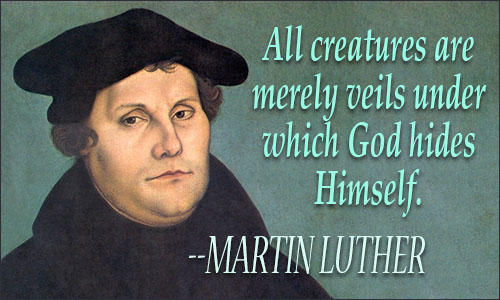A real church is not a lose amalgamation of interests groups.
The whole reason for existing is to raise up people who hear God's voice and are prepared to go out into the wider world to make a difference.
Leadership of the local church is essentially saying; This is how it looks like! Leadership transforms the universal and timeless vision of the church, given by God in John 17 and Matt 28 in local terminology.
Consider the difference in wordings in the different retelling of the life of Jesus or in the letters to the different churches. At a church where the congregants know themselves to be at the razor's edge and where they didn't always feel safe, we hear; "God will take care of you." At another church where the congregants perhaps felt too secure and comfortable the message is; "You need God more than you realize." Elsewhere, we even hear; "Repent." It is not three different Gospels that the different writings promote, just different emphases within the same Gospel of Jesus Christ.
Some emphases certainly are easier presented and embraced but all are equally important as a whole.
In some respect the particular emphasis of the preacher is the medium through which the congregants hear the gospel, just like the music or the pastor itself. In churches all over the theological spectrum, congregants frequently conflate their theological convictions with their preferences regarding medium of expression. It is therefor vitally important to preach the whole gospel of Jesus Christ.
Every person is to have his due. He who preaches solely to saints ; he who preaches solely and only to the sinner; and never to the saint, may miss some important truth of the whole of the gospel. In the local setting of the church we have amalgamation here. We have those who are full of assurance and strong; we have those who are weak and low in faith; we have the young converts; we have some halting between two opinions; we have the moral man; we have the sinner; we have the reprobate; and we those who are at the fringe and we have the outcast. Each needs to hear the word, each needs to be moved from milk to solids, let each have a word. Let each have a portion of meat in due season; not every Sunday perhaps, but in due time. Each of these will have a preference of emphasis, just like in music, ministry involvement or preacher, just as the preacher will have a particular emphasis within the gospel. But the gospel is not about preferences, comfort zones or like and dislikes but about truth and the need of the world.
I for one, don't want my comfort zone or alike dictate my future or the future of the church. Our comfort level sometimes needs to be challenged, our assumptions need to be startled, and our privilege questioned.
“To comfort the afflicted and afflict the comfortable” was certainly one of the roles of the prophets, Jesus and the church, challenging those in power and championing those in need. This is still necessary, and it becomes vitally important to turn those words toward ourselves the more we are engaged in helping or challenging others. As pastors, leaders, teachers, we are also activist for justice, something we need to not forget: Thou we are foreigners, we are also in this world and therefore are included in the fabric of the very society we are being sent to. We are neither separated from the women and children needing protection, nor are we separated from those who are being marginalized for little or no reason other than racism, agism, and the many other isms in our society. We are not being separated from the workers in sweat shops, families needing to be fed or those who boat across the Meditarian sea in the hope of a better life.
We can take into our arms and hold that which needs comfort. We can take courage and challenge that which should not be allowed to remain comfortable. The whole world lives around of us, and we are part of the whole world. Although, we are in many ways different, we must stop thinking we are separate, or have arrived to the point that we segregate and retreat into our personal comfort zones.
And so the ongoing proclamation of the gospel in all its aspect and emphases is about change, is about transformation and is about empowerment, to feel the discomfort and comfort of the gospel, to examine our reactions to it and to what we see happening around us in light of it. Then our job is to decide what to do or not to do with it.

No comments:
Post a Comment